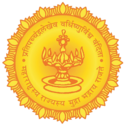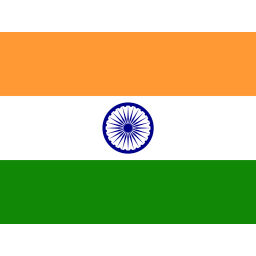Address by Governor at the inauguration of International Conference on Better Elections for Healthier Democracy
Address by Shri CH. Vidyasagar Rao, Governor of Maharashtra at the inauguration of International Conference on ‘Better Elections for Healthier Democracy’ organized by the State Election Commission of Maharashtra at ‘The Leela’, Sahar, Mumbai at 0930 hrs on Thursday 25th October 2018
Smt. Pankaja Gopinath Munde, Hon’ble Minister for Rural Development and Women and Child Welfare, Government of Maharashtra, Shri Radhakrishna Vikhe Patil, Leader of the Opposition in the Maharashtra Legislative Assembly, Shri J S Saharia, State Election Commissioner, Maharashtra, national and international delegates, Shri Shekhar Channe, Secretary, State Election Commission, senior government officials, people’s representatives, members of Media, ladies and gentlemen,
Good morning and greetings to you.
I am indeed happy to associate myself with the first International Conference of Election Commissioners and Election Conducting Authorities organized by the State Election Commission of Maharashtra. I extend a hearty welcome to all the delegates to this Conference.
At the outset I congratulate the State Election Commission of Maharashtra for its excellent initiative in organizing the International Conference on the theme “Better Elections for Healthier Democracy”.
I will particularly congratulate Shri J S Saharia, the most dynamic State Election Commissioner of Maharashtra and his entire team for their unstinted efforts in bringing about this discussion. The topics and sub-topics chosen for discussion are appropriate and extremely relevant.
I am sure, sharing of experience and ideas by national and international delegates, knowledge partners, non-governmental organizations, researchers and people’s representatives will help us in creating a more participatory, people-friendly and transparent mechanism for the effective functioning of democracy and for the smooth conduct of elections at all levels, particularly at the grassroots level.
Ladies and gentlemen,
During the last two centuries, the number of democratic countries has increased significantly. Today a majority of countries of the world are democratic.
I am proud to state that democracy has always been a way of life for the people of India. It can be said that democracy runs in the veins of the people of India.
T.W. Rhys Davids, the leading Pali scholar, pointed out in his book ‘Buddhist India’ that the Canon and the Jatakas from the Buddhist period, – which means more than 2300 years ago, – depicted India, as a country in which public decisions were made in assemblies, moots, or parliaments.
Indians were true practitioners of democracy, until the Indian subcontinent came under the domination of Mughal rulers and later under the British colonizers. The colonial masters not just disrupted our social, economic and cultural institutions, they also tried to disturb our democratic institutions.
After Independence, however, India opted for democracy and chose the Parliamentary form of democracy. Thus began our tryst with democracy once again.
While the Constitution of India came into effect on 26th January 1950, the Election Commission of India was established a day before on 25th January 1950.
A remarkable thing happened the moment we adopted the Constitution. The Constitution of India granted right to vote to every single individual, including women on the very same day of adopting the Constitution. This was in contrast with some of the advanced nations where women were denied equal representation in the initial years.
Our Father of the Nation Mahatma Gandhi was a staunch protagonist of democracy at the grassroots level.
In an article in ‘Harijan’, Mahatma Gandhi wrote, and I quote,
“My idea of village swaraj is that it is a complete republic, independent of its neighbours for its own vital wants, and yet interdependent for many others in which dependence is a necessity.”
Mahatma Gandhi’s idea saw its reflection in the Constitution with the passage of the landmark 73rd and 74th constitutional amendments in the year 1992. It is only appropriate that the State Election Commission is celebrating the Silver Jubilee of this constitutional amendment.
I would like to inform this august gathering that the 73rd and 74th constitutional amendment provided constitutional status to the local self governments and most importantly, provided for the establishment of an independent State Election Commission in each state for the timely conduct of elections in a free, fair and transparent manner.
Many political scientists have rightly observed that the decentralization of public administration and the introduction of local elected bodies have produced systems of governance that are better able to meet the needs of the poor, the tribals and other vulnerable groups. Decentralization has given citizens not just from cities and towns, but also those from the smallest of the villages, the power to hold their elected representative accountable for decisions affecting their life and livelihoods.
In Maharashtra and in many other States, we took one more major decision to make our democracy truly representative. A bill reserving 50 per cent of seats in local self governments exclusively for women members was passed. Thanks to the decision, there are more women mayors, Sarpanchs, Presidents of Zilla Parishads, Municipal Councils, Village Panchayats and so on.
Greater participation of women in the decision making process has augured well for the future of our democracy and empowerment of women.
Ladies and gentlemen,
This State of Maharashtra has an estimated population of 116 million. Which means, the population of Maharashtra alone, is greater than the combined population of Germany, Australia and New Zealand put together. That explains how the job of State Election Commission of Maharashtra is tough and challenging.
To the credit of the Commission, with limited human and material resources at its command, the State Election Commission returns more than 250,000 local representatives every 5 years from approximately 28000 local self governments. Given the mammoth task of the Commission, it is necessary to treat the State Election Commissions on par with the Election Commission of India and to provide it adequate funds, functions and functionaries.
Ladies and gentlemen,
Elections are the touchstone for a democracy. The regularity and the fairness of elections is an indication of the health of any democracy. Elections are an expression of individual freedom and give each citizen a sense of participation in the governance.
However it is a reality that elections are becoming an expensive proposition. If conducting elections is getting expensive, contesting election is getting even more costly.
Spending by candidates is growing in all elections. Quite often losing candidates end up with huge debt on their heads.
Many times, political parties attach great importance to winnability of the candidates for awarding him ticket for contesting elections. Sometimes criminal record is ignored in the face of winnability of the candidate. I do feel that there should be a broad consensus among all political parties that candidates with criminal background are not offered party tickets.
With limited power at its disposal, it is a challenge for the Commission to keep a close watch on electoral malpractices. However, I do feel that the Commission must keep a strict watch on the overt and covert efforts made to bribe of voters through enticements and sops.
During the last two decades, the world has witnessed a sudden spurt in media. From the traditional medium of newspapers, today we have electronic media, digital media and even social media. During the last few years, there have been instances of social media being misused to spread fake news and objectionable content. Social media has often been misused to foment violence and cause trouble.
The Government of India is already engaging with social media platforms to prevent the spreading of fake news. But because social media knows no boundries, this remains a gray area and we all will have to remain vigilant about misuse of the social media.
Ladies and gentlemen,
For a country like India having a majority of youthful population, it is necessary that the State and the Central Election Commissions work closely to enhance youth participation in the democratic process.
Thought should be given to starting Democracy Clubs in schools and Colleges to engage students with democracy and election process. The National Voters Day can be organized in schools and colleges on 25th January.
Deliberations may be held on making our electoral process more inclusive and friendly for Persons with Disabilities and also for officials who are unable to cast their vote on account of national duty. Our motto should be ‘No Voter to be left behind.’
The penetration of mobile phones and internet connectivity in Maharashtra is deep even in rural areas, except for few remote areas. Fortunately, people of rural India have keen interest in democracy and electoral politics. The State Election Commission must take advantage of these factors to reach out to every youth through social media. We must involve the youth in voter registration campaigns and voter awareness programmes.
We have to harness the power of modern technology to strengthen democracy and the entire election conducting process.
In this connection, I wish to congratulate the State Election Commission for its numerous technology-driven initiatives aimed at creating awareness among voters and increasing the participation of people in the electoral process.
In my capacity as Chancellor of 20 state universities, I will appeal to the Commission to work closely with Colleges and Universities.
As a sequel to today’s meet, I will also call upon the State Election Commission to create a digital platform for the sharing of experiences and success stories by various states and countries. This will help us to adopt the best practices.
I have great expectations from this International Conference. All election conducting bodies are working for strengthening democracy. Therefore, there must be sustained cooperation among all such bodies, research institutions and non-governmental organizations.
I welcome all of you once again and wish you fruitful deliberations.
Thank you
Jai Hind ! Jai Maharashtra !!



